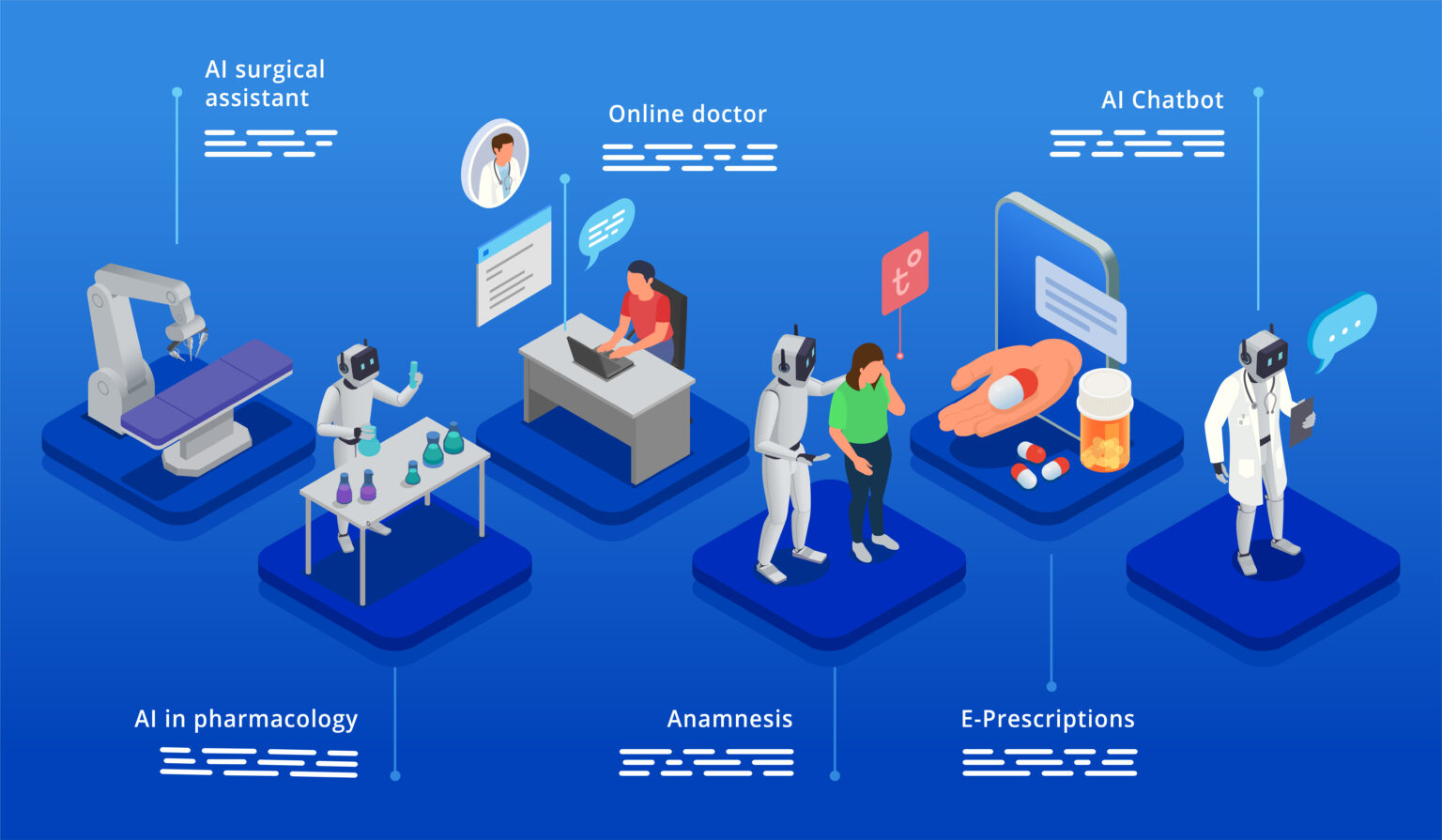Artificial Intelligence (AI) is transforming healthcare across the globe, and Australia is at the forefront of this revolution. The market for AI in Australian healthcare is projected to grow significantly, from AUD 80 million in 2022 to AUD 1.78 billion by 2030, with a compound annual growth rate (CAGR) of 46.72%.
Fueling AI Adoption: Australia's Healthcare Evolution
- Growing Demand for Efficient Healthcare Solutions: Australia's healthcare system is facing immense pressure due to a rapidly aging population and the prevalence of chronic diseases such as diabetes and cardiovascular conditions. By 2066, around 21% of Australia's population will be over 65, leading to higher demands for healthcare services. Chronic diseases currently account for 90% of deaths in Australia, underscoring the urgent need for more efficient and scalable solutions. AI can alleviate some of this pressure by improving early detection and optimizing treatment plans, which would reduce the burden on healthcare providers.
- Robust Healthcare Data Infrastructure: Australia's well-established healthcare data ecosystem, particularly its widespread use of electronic health records (EHRs), serves as a solid foundation for AI integration. The nationwide adoption of My Health Record, a digital repository that contains over 23 million Australians' health data, offers a critical foundation for AI applications. With such a vast volume of healthcare data, AI systems can develop more accurate predictive models, optimize care delivery, and identify early warning signs of diseases like cancer.
- Strategic Initiatives to Boost AI Adoption: The Australian government has been proactive in fostering AI adoption in healthcare through initiatives like the National Policy Roadmap for AI in Healthcare, which outlines a structured plan for integrating AI technologies into medical practices by addressing regulatory challenges and promoting innovation. For example, a project led by the Australian e-Health Research Centre is developing AI-based tools to enhance early diagnosis of heart disease, positioning Australia as a pioneer in AI healthcare innovation. These government-backed efforts provide significant support for medical device manufacturers and consultants looking to expand into AI-driven technologies.
![]()
Navigating the Hurdles of AI Implementation
- Lack of Standardization and Interoperability of Healthcare Data: Despite the abundance of healthcare data available through various government systems, the decentralization and fragmentation of this data hinder its incorporation into AI applications. Inconsistent data formats across hospitals, clinics, and health systems make it difficult for AI technologies to perform efficient analysis, slowing the adoption of AI-driven healthcare solutions.
- Regulatory Environment: The regulatory landscape around AI in healthcare presents additional hurdles. Issues such as data privacy, transparency, and accountability are critical concerns for AI-driven systems, especially in sensitive areas like medical diagnostics. In 2022, Australia's Office of the Australian Information Commissioner reported that health service providers were one of the top 5 sectors to notify data breaches, raising concerns over AI's role in handling personal medical information. Moreover, AI algorithms are prone to bias, particularly in predictive tools, leading to unequal health outcomes for different population groups. The absence of clear and standardized AI regulatory guidelines creates uncertainty for manufacturers, potentially delaying product approval and adoption in the healthcare market.

The Road Ahead: AI's Promise for Healthcare Innovation
The integration of AI into Australia's healthcare system is set to revolutionize the delivery of medical services, with the market expected to grow to AUD 1.78 billion by 2030. This rapid expansion is fueled by the need for more efficient healthcare solutions, particularly in addressing chronic diseases and an aging population. By optimizing early detection, treatment plans, and utilizing the country's robust healthcare data infrastructure, AI is driving a transformative shift in the future of healthcare delivery.
Qualtech, with its extensive experience in Australian medical device regulatory services, offers unparalleled expertise to navigate the complex regulatory landscape. With a local presence and experts deeply familiar with the market and regulations, Qualtech ensures a smooth entry into the Australian healthcare market. Partner with Qualtech now to leverage our knowledge and achieve regulatory success in Australia.
References
- Australia Artificial Intelligence in Healthcare Market Report 2022 to 2030 (insights10.com)
- Older Australians, Demographic profile - Australian Institute of Health and Welfare (aihw.gov.au)
- Australia's health 2024: data insights: The ongoing challenge of chronic conditions in Australia - Australian Institute of Health and Welfare (aihw.gov.au)
- Electronic Health Records | Digital Healthcare Research (ahrq.gov)
- AAAiH_NationalAgendaRoadmap_20231122.pdf (mq.edu.au)
- CSIRO study identifies AI models to improve automated chest X-ray diagnoses - CSIRO
- Notifiable Data Breaches Report: July to December 2022 | OAIC
